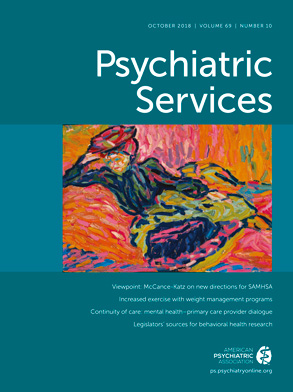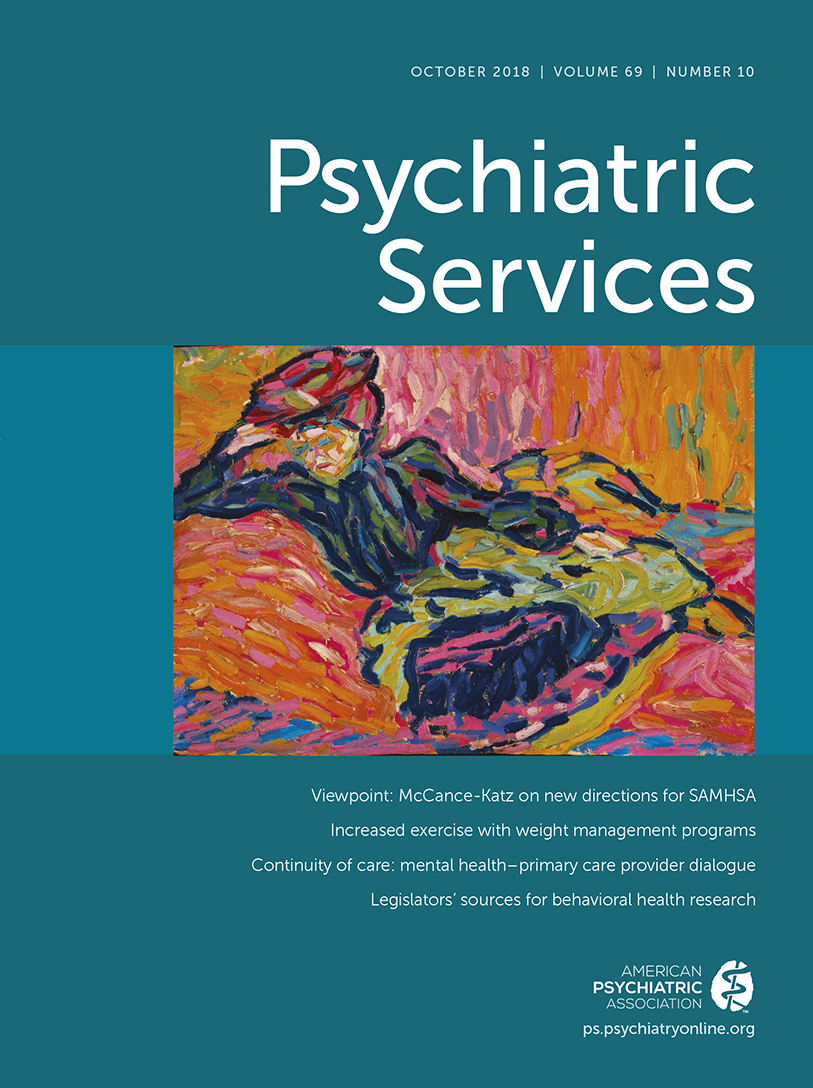APA congratulates the 2018 award recipients. Read more about these outstanding programs online.
Gold Award (Academic Program): Domestic Violence Initiative
Like a mustard seed, the Domestic Violence Initiative started small, but it has quickly gained traction as a model for providing integrated psychiatric treatment for survivors of domestic violence. Established with a grant from the Chapman Perelman Foundation, the program provides on-site psychiatric treatment at the Bronx Family Justice Center for clients with a history of intimate partner violence. Clients are eligible to receive immediate access to a full range of psychiatric services in the same convenient location where they receive legal assistance on immigration and family court matters, meet with prosecutors, access shelter, and get help in applying for housing and financial assistance. Children ages 3 and up can play in a safe and supervised children’s room while their parents receive services. No appointments are necessary, and all are welcome regardless of age, gender, sexual orientation, language, income, and immigration status. Treatment is provided by an L.C.S.W. psychotherapist and a psychiatry fellow at Columbia University Medical School, which launched the program in 2014 through a partnership with the Mayor’s Office to Combat Domestic Violence. In 2015, Mayor de Blasio announced plans to replicate the program at family justice centers in all five boroughs. (Elizabeth Fitelson, M.D., and Catherine Monk, Ph.D., codirectors)
Gold Award (Community Programs): Chesapeake Connections
The era of warehousing patients with serious mental illness is long gone, but replacing long-term psychiatric hospitalization with a better alternative has been challenging. In Baltimore, Chesapeake Connections has made significant progress in reducing psychiatric hospitalization among persons with serious mental illness by surrounding them with all the supports necessary to remain in the community. The program is part of Mosaic Community Services, a nonprofit provider of community-based mental health and addiction services and a member of the Sheppard Pratt Health System, a pioneer in the humane treatment of serious mental illness. True to its roots, Chesapeake Connections is committed to doing “whatever it takes” to help members live their “best lives,” even if it means answering a call for help at 2 a.m. Key services include intensive case management, life skills training, and practical help with living arrangements and benefits. Capitated funding allows the program to flexibly allocate funds, whether to help members pay for a prescription or pursue a long-held ambition. The combination of 24/7 wraparound services and flexible funding has helped members achieve stability after many years of cycling in and out of institutions. Just over half of the programs’ members live independently in the community with the program’s intensive supports, and the remaining members are enrolled in supported housing. (Denise Chatham, program director)
Silver Award: Reciprocal Peer Support
Confiding in someone with similar experiences is often helpful during a time of personal crisis. Reciprocal Peer Support uses that guiding principle as the basis for connecting persons experiencing a mental health crisis with a peer from a similar background. Located in a large call center at Rutgers University Behavioral Health Care in Piscataway, New Jersey, Reciprocal Peer Support oversees hotlines for 14 unique peer support programs, including COP2COP, Mom2Mom, Vets4Warriors, Vet2Vet, and Care2Caregivers, each with its own dedicated toll-free 800 number. Callers are immediately put in touch with a trained peer supporter who understands the pressures and challenges they face, whether as police, veterans, or mothers of special needs children. Using a conversational tone as much as possible, peer supporters rely on their cultural connection with the caller to ascertain the nature of the crisis and assess suicide risk and weapons availability. Unlike most crisis intervention programs, Reciprocal Peer Support encourages peer supporters to work closely with clinician partners to connect the caller with behavioral health care, housing, financial, or family-oriented services. As a result, the relationship between peer supporters and peers may continue for a significant period, long after the crisis has passed. (Cherie Castellano, program director)

